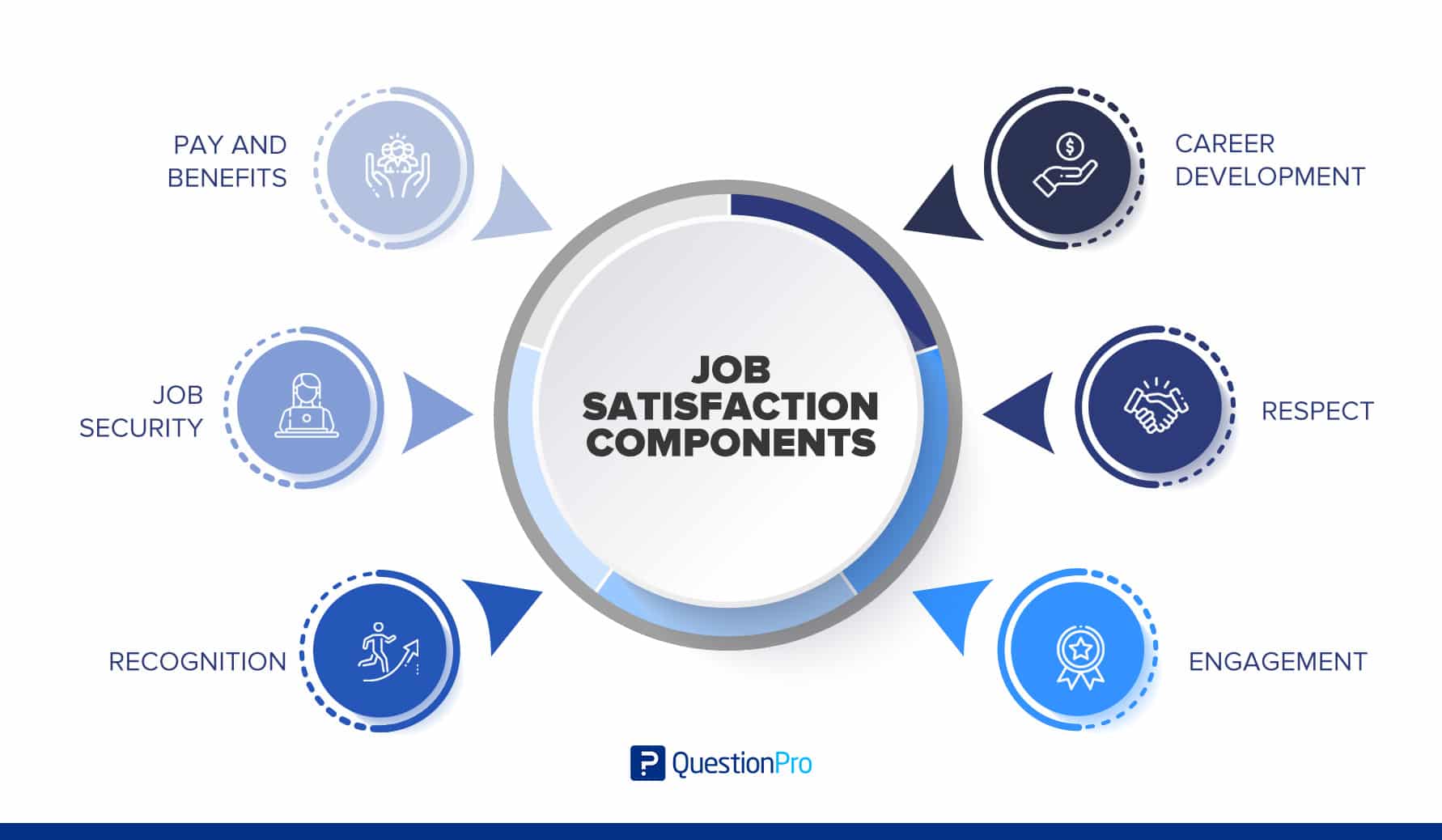Job Satisfaction
What is Job Satisfaction?
Definition:
“Job Satisfaction” refers to an individual’s overall contentment and positive feelings toward their work. It encompasses various factors, including the work environment, tasks and responsibilities, relationships with colleagues and supervisors, and the overall fulfillment derived from one’s job. Job satisfaction is a subjective measure, influenced by personal expectations, values, and the alignment of individual goals with organizational objectives.
Analogy:
Consider job satisfaction as the fuel that propels a vehicle forward. Just as fuel is essential for a vehicle’s smooth operation and performance, job satisfaction is crucial for an individual’s motivation, productivity, and overall wellbeing in the workplace.
Further Description:
Job satisfaction involves several key components:
Work Environment: The physical and social aspects of the workplace significantly impact job satisfaction. Factors such as the office atmosphere, facilities, and relationships with colleagues contribute to the overall work experience.
Tasks and Responsibilities: The nature of the job itself, including the variety of tasks, challenges, and the level of autonomy, can influence job satisfaction. Meaningful and engaging work tends to contribute positively to job satisfaction.
Relationships at Work: Interactions with colleagues, supervisors, and team members play a vital role in job satisfaction. Positive relationships, effective communication, and a supportive work culture contribute to a more satisfying work experience.
Recognition and Rewards: Feeling valued and appreciated for one’s contributions enhances job satisfaction. Recognition, rewards, and opportunities for career growth contribute to a sense of accomplishment and fulfillment.
WorkLife Balance: Striking a balance between professional and personal life is essential for job satisfaction. Flexible work arrangements and supportive policies contribute to a healthier worklife balance.
Alignment with Values and Goals: Job satisfaction often depends on how well an individual’s values and personal goals align with the mission and values of the organization. When there is alignment, employees are more likely to feel a sense of purpose in their work.
Why is Job Satisfaction Important?
Increased Productivity: Satisfied employees are generally more productive, as they are motivated to contribute their best efforts to the success of the organization.
Employee Retention: Job satisfaction is closely linked to employee retention. Satisfied employees are less likely to seek employment elsewhere, reducing turnover costs for organizations.
Positive Workplace Culture: Job satisfaction contributes to a positive workplace culture where employees feel engaged, motivated, and invested in their work and the success of the organization.
Enhanced Wellbeing: Satisfied employees experience higher levels of overall wellbeing, including mental and emotional health. A positive work environment can contribute to reduced stress and improved jobrelated happiness.
Innovation and Creativity: Job satisfaction fosters a conducive environment for innovation and creativity. Employees who are satisfied with their work are more likely to contribute ideas and take risks.
Examples and Usage:
Google: Google is known for its focus on employee satisfaction. The company provides a range of benefits, including flexible work schedules, wellness programs, and creative office spaces, contributing to high levels of job satisfaction among its employees.
Zappos: Zappos, an online shoe and clothing retailer, places a strong emphasis on creating a positive and enjoyable work environment. The company offers unique perks, a vibrant workplace culture, and encourages employee creativity, contributing to high job satisfaction.
Salesforce: Salesforce emphasizes employee wellbeing and satisfaction. The company provides various employee benefits, wellness programs, and opportunities for career development, fostering a positive work environment.
Key Takeaways:
- Job satisfaction is influenced by factors such as the work environment, tasks and responsibilities, relationships at work, recognition and rewards, worklife balance, and alignment with values and goals.
- Positive workplace culture and employee wellbeing are closely tied to job satisfaction.
- Organizations can enhance productivity, retain talent, and foster innovation by prioritizing job satisfaction through supportive policies, recognition programs, and a positive work environment.
- Examples of companies like Google, Zappos, and Salesforce showcase the importance of prioritizing employee satisfaction for organizational success.





